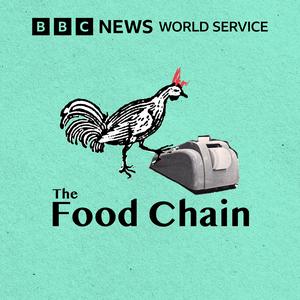It can be the difference between life and death for your character, signal you’re on a hostile planet or in a sumptuous world, or can even give you the whole basis for a game. In this week’s Food Chain we hear where the ideas for some of the most disgusting and delicious foods in games come from, and how to recreate them in real life. Video game creator Tim Cain tells us why food was such an important tool in his games Fallout and The Outer Worlds. Author and gamer Cassandra Reeder tells us why she started making entire recipe books based on food from video games, and how important is food in gaming? Video game enthusiast Harriet tells us why it's an essential tool for escapism. If you would like to get in touch with the show, please email:
[email protected]
Presenter: Ruth Alexander
Producers: Izzy Greenfield and Hannah Bewley
